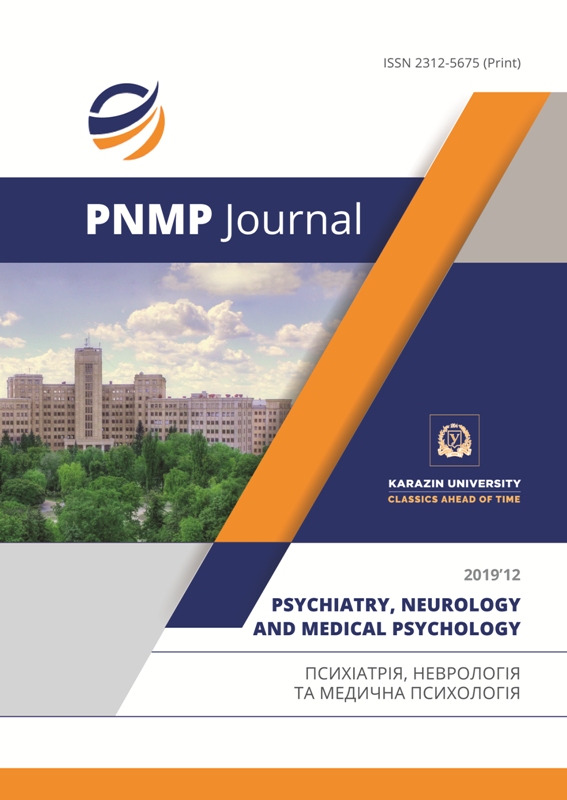The occurrence of acute demyelinating encephalomyelitis after respiratory viral infection (clinical observation)
Abstract
This article examines the development of acute demyelinating encephalomyelitis against a background of a viral infection in a clinical case. Based on the literature review, it is known that acute disseminated encephalomyelitis is an immuno-mediated single-phase inflammatory demyelinating disorder of white matter of the brain and spinal cord. It is noted that one of the proposed mechanisms of pathogenesis is that myelin autoantigens, such as myelin main protein, proteolipid protein and myelin oligodendrocyte protein, have antigenic determinants with the infecting agent. Antiviral antibodies or cell-mediated cross-reacting pathogens respond to myelin autoantigens, resulting in acute demyelinating encephalomyelitis. Acute demyelinating encephalomyelitis has been found to be associated with increased vascular permeability and accumulation of circulating immune complexes or other humoral factors that develop after exposure to a foreign antigen introduced by infection or vaccination. This process then leads to infiltration of the walls of the vessels by mononuclear cells with subsequent swelling and periodic hemorrhage. Microglia, lymphocytes, and phagocytes appear throughout the day, ultimately leading to demyelination and possible gliosis and necrosis. The degree of demyelination and subsequent glial and neural changes explain the difference between clinical features and disease prognosis. In clinical case, we have demonstrated the appearance of this disease, which developed in close temporal connection with infectious disease. Positive meningeal signs, tenderness and limited movements of the eyeballs, diplopia when viewed sideways, decreased convergence, horizontal nystagmus when viewed sideways, symptoms of oral automatism, decreased muscle strength diffuse, tendons and tendons = D, average liveliness; from the feet S> = D, average liveliness, tremor of the hands. The MRI findings, in addition to the clinical picture, helped to establish the diagnosis. As a result of this, a cure for the disappearance of a neurological deficit was achieved. Thus, this clinical case proves that disseminated encephalomyelitis proceeds by type of acute disease with rapid increase of symptoms and their subsequent regression.
Downloads
References
Handbook on the formulation of a clinical diagnosis of diseases of the nervous system / Ed. VN Stock, O.S. Levina. - M .: Medical Information Agency LLC, 2006. - P. 92-94.
Acute disseminated encephalomyelitis / R. Bembeva Journal. The attending physician 2008.
Diseases of the nervous system, edited by Yahno NN, Stulman DR. Moscow: Medicine, 2001. P. 386.
Hynson J., Kornberg A., Coleman L., Shield L., Harvey A., Kean M. Clinical and neuroradiologic features of acute disseminated encephalomyelitis in children. Neurology. 2001; 56: 1308–12.
Acute multiple encephalomyelitis and multiple sclerosis: open questions of differential diagnosis in the case. Melnikov MV, Boyko OV, Lashch NY, Popova EV, Martynov M.Yu., Boyko AN Journal of Neurology and Psychiatry. S.S. Korsakova. Special Issues. 2012; 112 (9): 52-58 /
PP Shevchenko, SM Karpov, OA Rzaeva, VE Yanushkevich, AV Koneva. Multiple sclerosis: Ethiopathogenesis from the point of view of modern science. - The successes of modern natural science. - 2014. - №6. - P. 126-128.
Kesselring J., Miller D.H., Robb S.A. et al. Acute disseminated encephalomyelitis. MRI findings and the distinction from multiple sclerosis. Brain 1990; 113: 291-302.
Polman C.H., Reingold S.C., Edan G. et al. Diagnostic criteria for multiple sclerosis: 2005 revisions to the "McDonald Criteria". Ann Neurol 2005; 58: 840-846.
Singh S., Prabhakar S., Korah I.P. et al. Acute disseminated encephalomyelitis and multiple sclerosis: magnetic resonance imaging differentiation. Australas Radiol 2009; 44:

